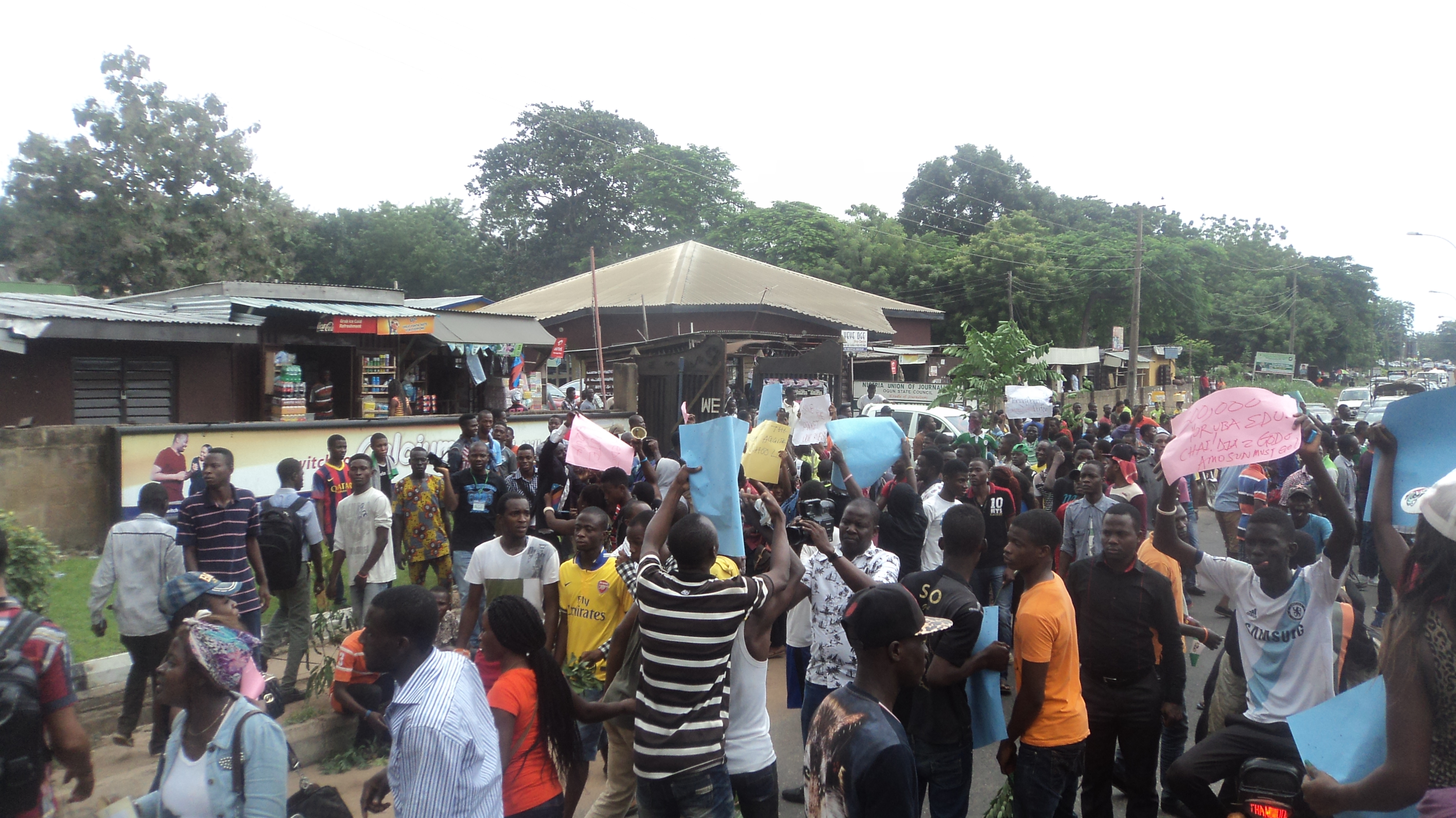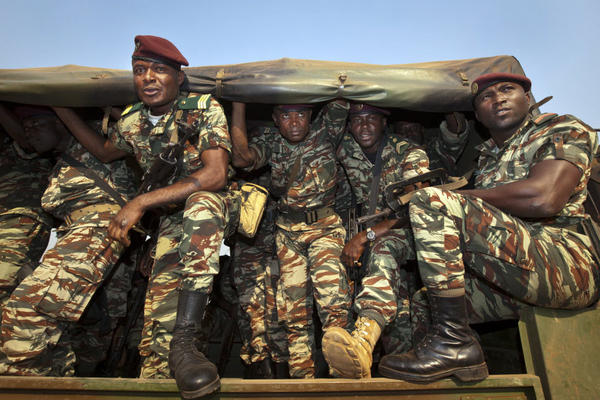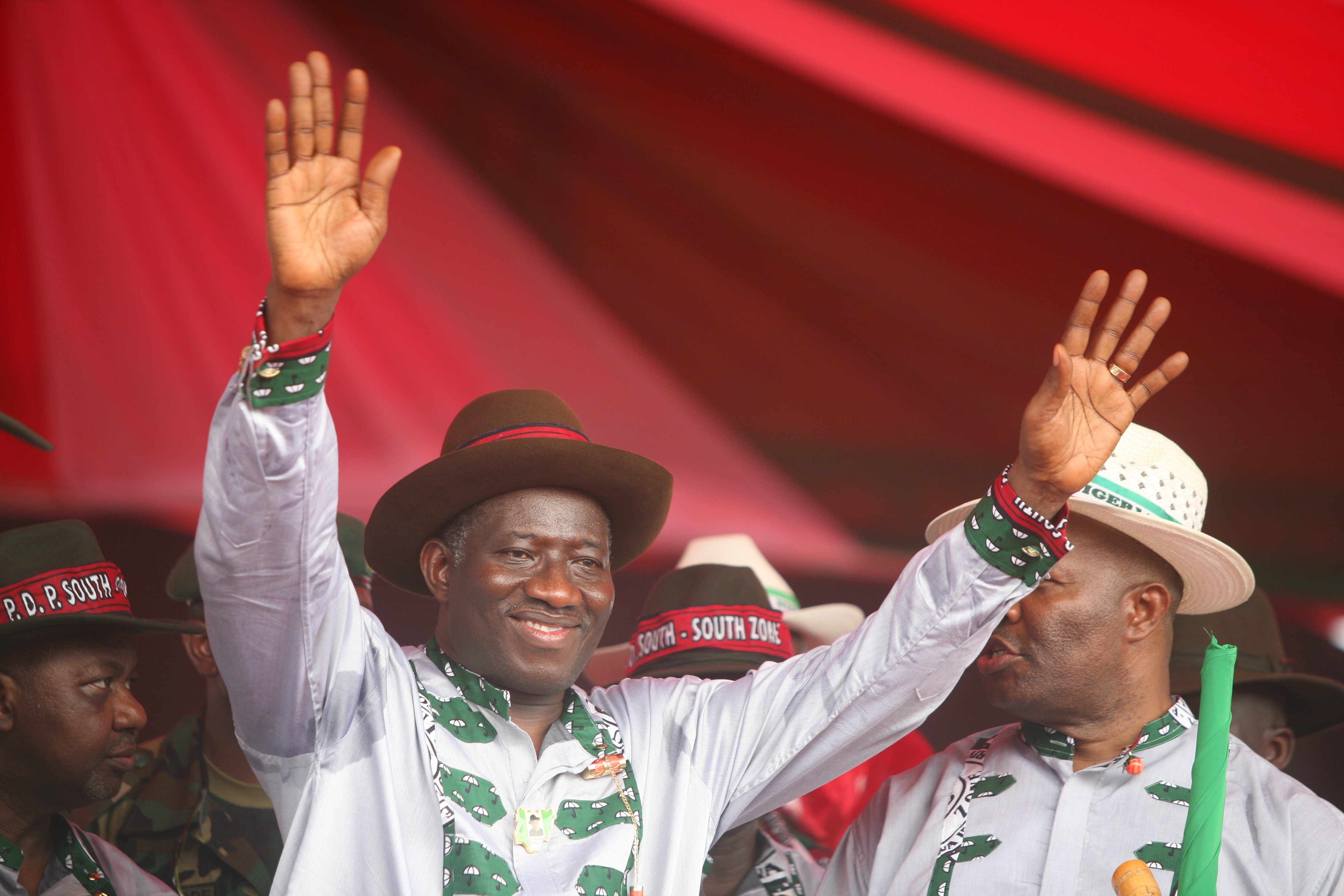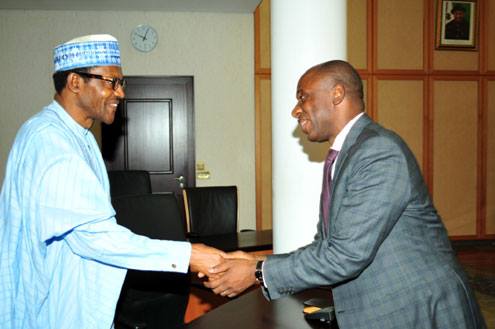Just days ago, news came that Independent National Electoral Commission (INEC) chief Attahiru Jega had delivered the non-news of the century: Nigerians in the Diaspora would not be voting in next year’s elections. Basically, that was as unexpected as a sermon from a priest, all sarcasm intended.
The point is: Nigerians in the Diaspora will live with not voting in February. What is most dire is a clear-cut policy for citizens abroad.
I say this because it is no secret that a formidable number of the citizens of Africa’s most populous country live outside it. While the number of Nigerians in the Diaspora proliferates, it would seem attention towards their welfare by the state is in great decline.
At the height of Liberia’s civil war, a local rebel group, the National Patriotic Front of Liberia, brazenly took several Nigerians from the Nigerian Embassy in Monrovia, including journalists Krees Imodibe and Tayo Awotunsin, killing them.
Advertisement
Despite the fact that the rebels attacked on two occasions, weeks apart, many called this unfortunate calamity a lesson for Nigeria. Indeed, that was decades ago, in 1990, right? So, 23 years later, what do we call a situation where hundreds of Nigerian families fled last year’s violence in the Central African Republic (CAR), went to the Nigerian embassy in Bangui and were left for at least a week without a word from consular officers? Or the protest by Nigerians at the embassy in Ankara, Turkey, over “systematic negligence of duties”, including issues such as “dead citizens in prisons whose properties still await the Embassy to sign…”
What of April’s protest by Nigerians in Malaysia over harassment by authorities of the south-east Asian country and a lack of consular efficiency with processing paperwork? Or Kemi Ola, the crying Nigerian student who vowed to burn her Nigerian passport after spending the equivalent of a month’s rent to travel to the Nigerian embassy in Canada only to find it closed, with no prior warning via its website? Do we continue to call these lessons, or do we call it out for what it is: a short-changing all concerned — the Nigerians whose billions of dollars in remittances buffer the economy, as well as our government, which has splashed at least N44bn of state funds on the foreign missions where attention to duty is a foreign concept.
It is easy to blame the sun, moon, stars, or say that the bath water used in childbirth is what makes Nigerian civil servants act a certain way no matter where they are based, but I shall look elsewhere: party manifestos.
Advertisement
Of carts before horses
Practically all Nigeria’s political parties have no mention of their plans for citizens abroad. Of course, when faced with flashing cameras and tape recorders, many politicians are quick to blurt out that they would grant Diaspora votes in the next election, even if said election is days away. This is quite like promising your in-laws, when cornered, that you would take care of your wife by buying her Chanel lipstick, when she has no shoes or clothes.
Let’s look at the two largest parties. The APC bases its foreign policies on the belief that it should “seek to protect the integrity of the black man both home and abroad” — never mind that not all Nigerians are fully black (or are men) in today’s globalised world. The APC manifesto speaks a lot about the AU, UN and finally makes only two, vague references to Nigerians in Diaspora:
- Recognise Nigerians in the Diaspora and find concrete means to cultivate them in the design and implementation of government policies and programmes.
- The Diaspora will be provided opportunity to exercise their franchise during general elections in their respective places of domicile.
As for the PDP, they also have a “commitment to the political and economic emancipation of the black people in the Diaspora,” but have no further mention of the word ‘Diaspora’, much less the phrase ‘Nigerians in Diaspora’.
Advertisement
So why are we surprised when embassies go on to have outdated websites and complacent staff that can give no help to citizens?
The Diaspora community has its share of the blame when citizens refuse to register with missions and those who place themselves in the limelight as spokespersons of the Diaspora community often limit the conversation and advocacy to partisan politics and their personal ambitions. However, the problem lies chiefly with those with the fiat to change the status quo.
Beyond legislation
Granted, there are pockets of sterling intervention, like mediation regarding the death of university students in North Cyprus and Ghana. But these are drops in the sea of consular matters that plague Nigerians. Even shady officials and citizens in host countries clearly capitalise on the lack of consular support for Nigerians to victimise them and will continue to do so.
Advertisement
But the legislative arm is good at wringing its hands or wagging its fingers over this issue. Sometimes, it even does both.
In 2009, a newspaper headline article declared that the Senate was “set to examine and make recommendations against the reoccurring maltreatment of Nigerian immigrants”.
Advertisement
Acting on a motion sponsored by Senator Wilson Ake, it hauled in the then-minister of foreign affairs and the comptroller general of immigration to show it meant business.
But by September 2011, things were still the same. Senate President David Mark was quoted as saying Nigeria would not condone further maltreatment of Nigerians abroad. Mark ended with this money quote: “For every single Nigerian that is maltreated outside this country, 10 of the citizens of those countries should be maltreated in Nigeria”.
Advertisement
In early 2014, lawmaker Abike Dabiri-Erewa bravely highlighted the case of Brazil, which had sent a prisoner-exchange treaty to Nigeria “almost six years ago.” The verdict? “Nigeria is not responding.” A few weeks later, Dabiri-Erewa (just like Wilson Ake in 2009) moved a motion in the House, and the result was that the house committees on Diaspora, human rights, justice and foreign affairs were ordered to “conduct a public hearing on the incessant cases of maltreatment of Nigerians abroad”. As you do.
If we are willing to spend N44bn a year on our foreign missions, then we must be bothered enough to ensure they are not another conduit for corruption and a means for placating cronies and washed-up politicians.
Advertisement
It starts with elections, where a premium should be placed on the specific policies that parties intend to enshrine in the constitution and mandate in our embassies to guarantee the fundamental rights of Nigerian citizens abroad. Even criminals have rights, much less the vast majority of law-abiding Nigerians who are often seeking nothing more than advice, new passports or basic information.
One part of me empathises with dogged advocates such as Dabiri-Erewa who have the courage to admit they are up against factors like inadequate data and records from the foreign affairs ministry. But the other insists that all politicians belong to a party, which should have plans well before elections hold, rather than turn up to embassy offices, plenaries, and presidential palaces, from where we all proceed to make it up as we go.
And so I say to the political parties: you all are aware, and are often proof that manifestos are not guarantees. So please feel free to tear up the shoddy sentences covering Nigerians in Diaspora and reveal a focused plan, with clear directives and processes which foreign missions should adhere to. There is still time. Failure to do so post-2015 elections may come as no surprise, but be aware that the people may not be as unforgiving, come 2019 or 2023, or 2027 or…
Just ask India’s political parties that continue to woo non-resident Indians, despite the fact that many have relinquished citizenship and cannot vote — it’s called soft power. No matter the current stage of a country’s democracy, politicians neglect their citizens abroad at their own peril — because this critical mass will often grow, assemble and morph into powerful lobby forces, steady purses that voluntarily/involuntarily fund political parties, even wars, and become a thorn in the flesh of governments, just like their counterparts at home. Just ask Sri Lanka. Or Zimbabwe.
Add a comment







